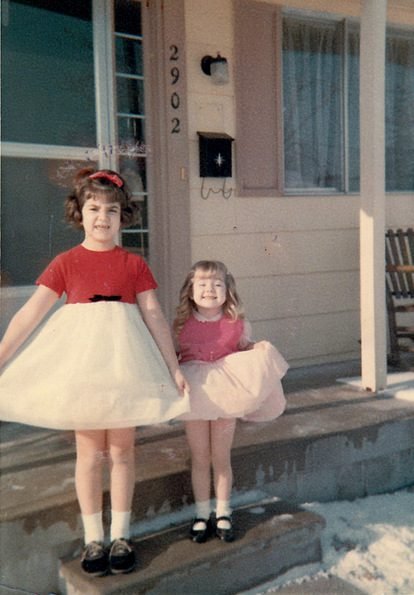
Based on a YouTube video produced by a few atheists talking about creationism, homeschooling, and Ken Ham, the CEO of Answers in Genesis, the Creationist Museum, and the Noah’s Ark Amusement Park has concluded:
A recent video of an atheist chat session on the internet is a must watch for all Christians! Every pastor, Christian leader, homeschooler, teenager, Christian parent, and, in fact, all Christians need to see this video chat featuring a number of very intolerant atheists (and some are hateful and angry). In fact, watch it at your Bible study, youth group meeting, home group, home, and so on—you will hear for yourself some of the best practical illustrations of many passages of Scripture come to life, including Romans 1, 2 Peter 3, and many other passages of Scripture that refer to people who oppose Christians. This can be an excellent practical Bible study for you.
The atheist video is one of the best I’ve seen to illustrate atheists exhibiting the following traits:
- Intolerance and arrogance
- Hatred of biblical Christians
- Hatred of the Bible
- Ignorance
- Wanting to control education and capture your kids’ hearts and minds
- Extremism
- Fighting against freedom of religion
- Wanting to close down or limit biblical, Christian homeschooling
- Seeking to control what private organizations teach
- Desiring to control what you teach at home
- Claim Christians are scientifically ignorant but are themselves scientifically inept
- Sanctimoniously determining morality for themselves
- Attempting to shape the culture according to their anti-God beliefs
First, let me say I wish atheists/humanists/secularists would STOP putting out videos like the one mentioned by Ham. The video is poorly done, quite embarrassing, and certainly should not be taken as a representation of how all or many atheists, humanists, and secularists think.
Second, Ham is an expert at ginning up support for his conspiratorial ideas about atheists, humanists, and secularists. It is NOT in our best interest to give him things that he can easily manipulate to gain his desired objective.
Now to Ham’s delineation of what he thinks the atheist agenda is. My response is indented and in italics.(it may not appear this way on some mobile devices)
Intolerance and arrogance
Intolerance and arrogance are human traits and not specific to any group. There are lots of intolerant, arrogant Christians, Ham included. Besides, intolerance has its place. We should be intolerant of beliefs that deliberately promote ignorance; beliefs like the earth is 6,020 years old and that global warming is a myth.
Hatred of biblical Christians
I am sure that there are atheists who hate Christians. However, most atheists do not hate Christians. They hate their beliefs. They hate their attempts to promote ignorance. They hate their attempt to hijack the U.S. government and turn our secular state into a theocracy.
Hatred of the Bible
Hate the Bible? Really? Who in their right mind hates a book, an inanimate object? I HATE you, Moby Dick! This is a silly statement. What we DO hate is what Christians DO with the Bible,and that’s trying to force everyone to worship their God and obey its commands.
Ignorance
Ignorance of what? The Bible? Not a chance. I may be ignorant of many things, but ignorance of the Bible is not one of them. Ham mistakes disagreement for ignorance. He is also oblivious to the fact that many of us were raised in church and know the Bible inside and out. Some of us are even college or seminary trained former pastors. We are anything BUT ignorant.
Wanting to control education and capture your kids’ hearts and minds
If Ham is talking about public schools then the answer is yes. Public schools should be secular, tax-supported institutions. People like Ham, holding to ignorant, unscientific beliefs, have no business being anywhere near the public schools. If parents want to school their children in scientific ignorance they are free to home school them or send them to a private Christian school.
Extremism
What’s extremism? In Ken Ham’s world, extremism is anything that differs from his narrow, peculiar beliefs. Besides, whose beliefs are extreme? Those who follow the path of science or those who get their science and history from a literalistic interpretation of an ancient text written by unknown authors thousands of years ago?
Fighting against freedom of religion
Wrong, wrong, wrong.
We are fighting against those who want to establish a theocracy. We are fighting against those who say the separation of church and state is a myth. Ham and all persons are free to worship God as they see fit as long as they stay on their side of the wall of separation of church and state. Want to drink poison and handle snakes as Mark 16 commands? By all means, go ahead. But, poison-drinking, snake-handling beliefs have no place in public schools or in official government policy.
Wanting to close down or limit biblical, Christian homeschooling
Limit, yes. Close down, no.
Home school teachers should be competent and society has a right to expect that every child receives a quality, comprehensive education. If home schoolers are willing to do this, I have no problem with home schooling. However, a number of states need to improve their home schooling and non-chartered private school laws. As it stands now, there is far too much latitude given to parents and private schools, and this often results in a poor, substandard education.
Seeking to control what private organizations teach
Again, we all have a vested interest in what children are taught. Our future depends on them receiving a quality, comprehensive education.
If he is talking about the Home School Convention, Answers in Genesis, or the Creation Museum, then yes they should be free to teach whatever they want as long as tax money is not being used to support these ignorant “teaching” endeavors.
Desiring to control what you teach at home
See above. Ham has repeated this point three times.
Claim Christians are scientifically ignorant, but are themselves scientifically inept
No, we don’t say Christians are scientifically ignorant. We DO say that young earth creationists are scientifically ignorant. Anyone who thinks the universe is 6,020 years old or thinks dinosaurs walked on the face of the earth at the same times humans did is scientifically ignorant. Every time science comes up with a new discovery that repudiates creationism, Ham fires up his IBM 286 computer, opens up Word Perfect for DOS, and writes a post disagreeing with the new discovery. He then posts it to the Answers in Genesis BBS. Wrong decade? Not in Ken Ham’s world.
Sanctimoniously determining morality for themselves
Duh, who else is going to determine what my morals are but me? Ham wants everyone to have his morals because he got his morals directly from God. If Christians all get their morals from God, why is it so many of them have differing moral views?
Attempting to shape the culture according to their anti-God beliefs
Guilty as charged with one caveat. I am trying to shape our culture with my humanistic beliefs, not atheism.
You can check out the video in question here.




